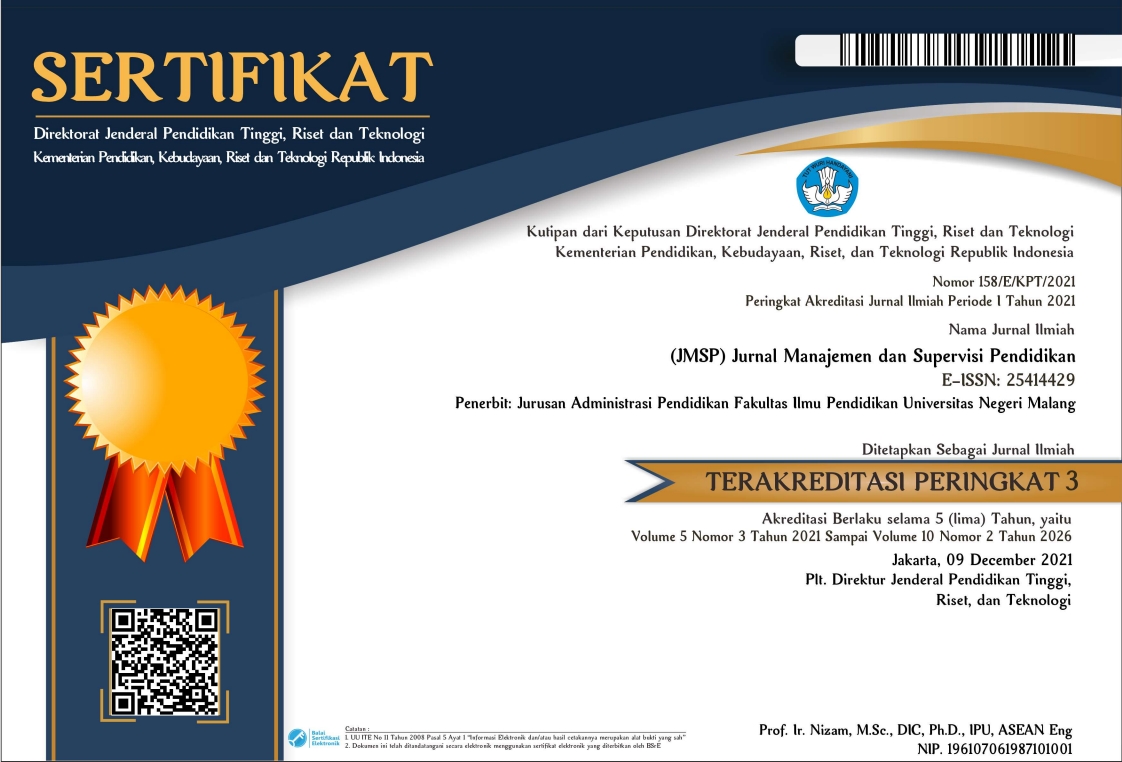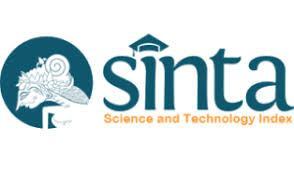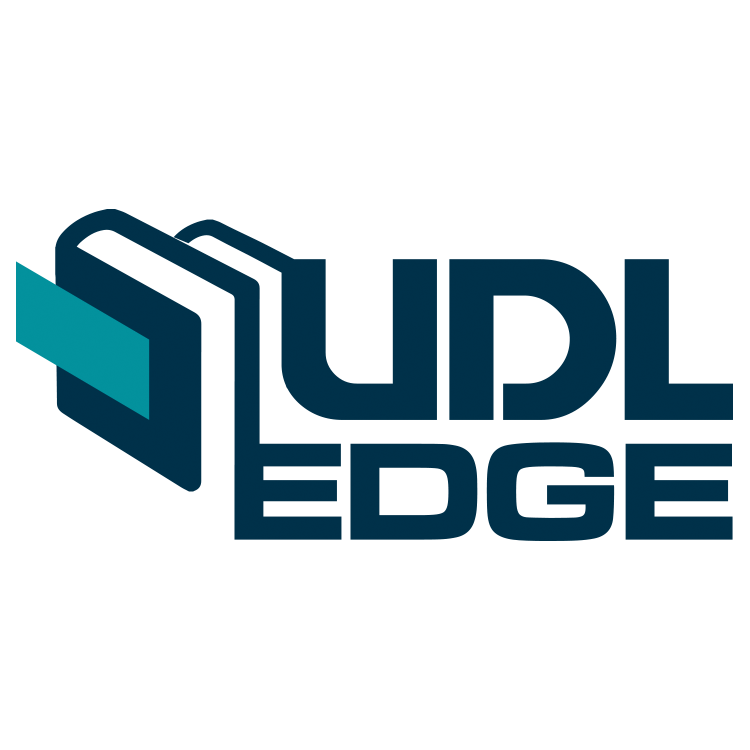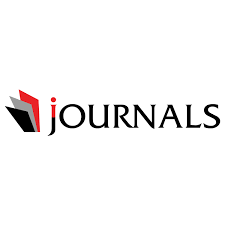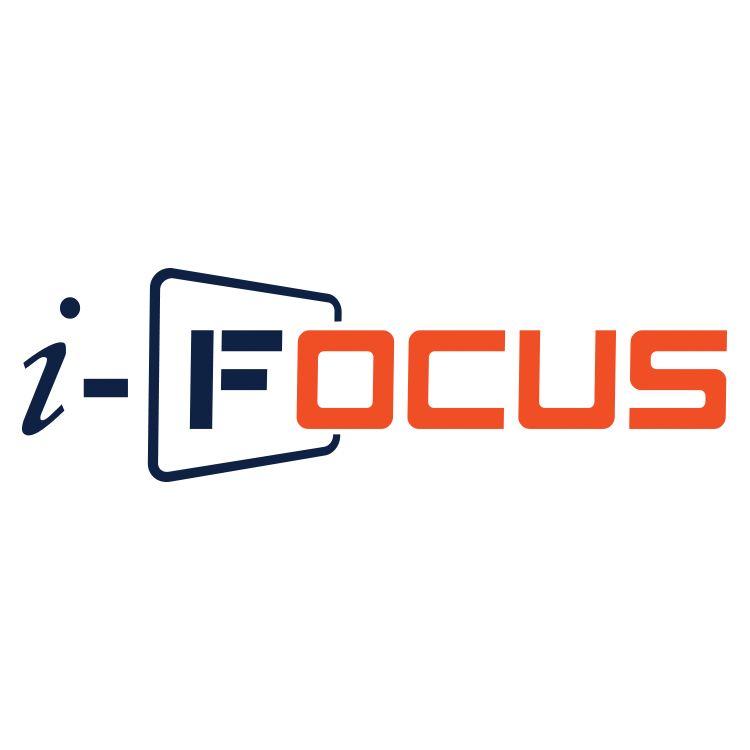Quality Mapping of Remote Elementary School-Based on e-EDS
Abstract
Keywords
Full Text:
PDFReferences
Adianto. 2018. Program Corporate Social Responsibility dalam Perspektif Indeks Kepuasan Publik di Riau. Sosio Konsepsia, 6(1), 90–109.
Aini, E. N., Isnaini, I., Sukamti, S., & Amalia, L. N. (2018). Pengaruh Tingkat Pendidikan Terhadap Tingkat Kesejahteraan Masyarakat di Kelurahan Kesatrian Kota Malang. Technomedia Journal, 3(1), 58–72. doi: https://Doi.org/10.33050/Tmj.V3i1.333
Anderson, S. E. 2003. The School District Role in Educational Change: A Review of The Literature. International Centre for Educational Change, 34(2), 25–45.
Anderson, S. E. 2006. The School District’s Role in Educational Change. International Journal of Educational Reform, 15(1), 13–37.
Atsebeha, A. T. 2016. Principals’ Leadership Styles and Their Effects on Teachers’ Performance in the Tigray Region of Ethiopia. Pretoria: University of South Africa.
Barber, M., Whelan, F., & Clark, M. 2010. Capturing the Leadership Premium: How the World’s Top School Systems Are Building Leadership Capacity For The Future. London: Mckinsey.
Beare, H., Caldwell, B. J., & Millikan, R. H. 2018. Creating an Excellent School: Some New Management Techniques. London: Routledge.
Bitsadze, M. 2019. How Georgia May Learn from Changes in Principal Support and Supervision Internationally. Journal of Educational Administration, 57(5), 582–590. https://Doi.org/10.1108/Jea-09-2019-226
Bottoms, G., & Fry, B. 2009. The District Leadership Challenge: Empowering Principals to Improve Teaching and Learning. Report Research. Wallace: Southern Regional Education Board.
Browne-Ferrigno, T., & Allen, L. W. 2006. Preparing Principals for High-Need Rural Schools: A Central Office Perspective about Collaborative Efforts to Transform School Leadership. Journal of Research in Rural Education, 21(1), 1–16.
Browne-Ferrigno, T., & Muth, R. 2006. Leadership Mentoring and Situated Learning: Catalysts for Principalship Readiness and Lifelong Mentoring. Mentoring & Tutoring, 14(3), 275–295.
Chapman, C. 2019. From Hierarchies to Networks: Possibilities and Pitfalls for Educational Reform ff The Middle Tier. Journal of Educational Administration, 57(5), 554–570. Https://Doi.org/10.1108/Jea-12-2018-0222
Chapman, C., & Sammons, P. 2013. School Self-Evaluation for School Improvement: What Works and Why? Report-Evaluative. United Kindong: Eric.
Chopra, A., & Marriya, S. 2013. Corporate Social Responsibility and Education in India. Issues and Ideas in Education, 1(1), 13–22.
Chrispeels, J. H., Burke, P. H., Johnson, P., & Daly, A. J. 2008. Aligning Mental Models of District and School Leadership Teams for Reform Coherence. Education and Urban Society, 40(6), 730–750. https://Doi.org/10.1177/0013124508319582
Chubb, J. E., & Moe, T. M. 1990. Politics, Markets, and America’s Schools. Washington DC: Brookings Institution Press.
Clarke, S. 2011. Improving the Small Rural or Remote School: The Role of The District. 55(1), 24–36.
Clarke, S., & Wildy, H. 2011. Improving the Small Rural or Remote School: The Role Of The District. Australian Journal of Education, 55(1), 24–36.
Cortez-Jiminez, G. 2012. Leadership Needs of California Rural School Administrators. Unpublished Doctoral Dissertation. CA: San Diego State University.
Creswell, J. W. 2010. Research Design Pendekatan Kualitatif, Kuantitatif, dan Mixed. Yogyakarta: Pustaka Pelajar.
Daly, A. J., & Finnigan, K. S. 2010. A Bridge Between Worlds: Understanding Network Structure to Understand Change Strategy. Journal of Educational Change, 11(2), 111–138.
Dean, D. R. 2007. Thinking Globally: The National College of School Leadership: A Case Study in Distributed Leadership Development. Journal of Research on Leadership Education, 2(1), 1–62.
Derrington, M. L., & Campbell, J. W. 2015. Implementing New Teacher Evaluation Systems: Principals’ Concerns and Supervisor Support. Journal of Educational Change, 16(3), 305–326.
Devos, G., & Verhoeven, J. C. 2003. School Self-Evaluation-Conditions and Caveats: The Case of Secondary Schools. Educational Management & Administration, 31(4), 403–420.
Elahi, F., & Ilyas, M. 2019. Quality Management Principles and School Quality: Testing Moderation of Professional Certification of School Principal in Private Schools of Pakistan. TQM Journal, 31(4), 578–599. https://Doi.org/10.1108/Tqm-11-2018-0173
Fink, E., & Resnick, L. B. 2001. Developing Principals as Instructional Leaders. Phi Delta Kappan, 82(8), 598–610.
Garira, E. 2020. Needs Assessment for The Development of Educational Interventions to Improve Quality of Education: A Case of Zimbabwean Primary Schools. Social Sciences & Humanities Open, 2(1), 100020.
Goddard, R., Goddard, Y., Sook Kim, E., & Miller, R. 2015. A Theoretical and Empirical Analysis of The Roles of Instructional Leadership, Teacher Collaboration, and Collective Efficacy Beliefs in Support of Student Learning. American Journal of Education, 121(4), 501–530.
Gurr, D. 2015. A Model of Successful School Leadership from The International Successful School Principalship Project. Societies, 5(1), 136–150.
Halsey, J. 2017. Independent Review into Regional, Rural, and Remote Education. Discussion Paper. Australia: Department of Education and Training.
Hanushek, E. A., & Woessmann, L. 2010. Education and Economic Growth. Economics of Education, 60–67.
Hariri, H., Monypenny, R., & Prideaux, M. 2016. Teacher-Perceived Principal Leadership Styles, Decision-Making Styles, and Job Satisfaction: How Congruent are Data from Indonesia with The Anglophile and Western Literature? School Leadership & Management, 36(1), 41–62.
Hasan, R. 2013. Penyelenggaraan Progran SD-SMP Satu Atap dalam Latar Budaya Rumah Betang Kalimantan Tengah. Jurnal Ilmu Pendidikan, 19(2).
Hidayat, N. 2016. Otonomi Daerah dan Desentralisasi Pendidikan (Studi pada Jenjang Pendidikan Menengah Dinas Pendidikan Kota Sawahlunto). Society, 4(1), 35–50.
Hidayati, N. D. 2011. Pattern of Corporate Social Responsibility Programs: A Case Study. Social Responsibility Journal, 7(1), 104–117. https://Doi.org/10.1108/17471111111114576
Honig, M. I. 2012. District Central Office Leadership as Teaching: How Central Office Administrators Support Principals’ Development as Instructional Leaders. Educational Administration Quarterly, 48(4), 733–774.
Honig, M. I., & Rainey, L. R. 2014. Central Office Leadership in Principal Professional Learning Communities: The Practice Beneath the Policy. Teachers College Record, 116(4), 1–48.
Honig, M. I., & Rainey, L. R. 2019. Supporting Principal Supervisors: What Really Matters? Journal of Educational Administration, 57(5), 445–462. https://Doi.org/10.1108/Jea-05-2019-0089
Honig, M. I., Copland, M. A., Rainey, L., Lorton, J. A., & Newton, M. 2010. Central Office Transformation for District-Wide Teaching and Learning Improvement. Research Report. Washington DC: Center for The Study of Teaching and Policy.
Honig, M. I., Venkateswaran, N., & Mcneil, P. 2017. Research Use as Learning: The Case of Fundamental Change in School District Central Offices. American Educational Research Journal, 54(5), 938–971.
Hyson, P. 2013. The Spirited Leader: The Potential of Spiritual Intelligence to Improve Leadership. The International Journal of Leadership in Public Services.
Johnson, P. E., & Chrispeels, J. H. 2010. Linking the Central Office and Its Schools for Reform. Educational Administration Quarterly, 46(5), 738–775.
Juharyanto, J. 2017. Kepemimpinan Unggul Kepala Sekolah Dasar Daerah Terpencil (Studi Multisitus pada Sekolah Dasar Di Kabupaten Bondowoso). Sekolah Dasar: Kajian Teori Dan Praktik Pendidikan, 26(1), 89–100.
Juharyanto, J., Sultoni, S., Arifin, I., & Nurabadi, A. 2019. Kepemimpinan Kepala Sekolah dalam Penguatan Peran Multi-Stakeholders Forum (Masalah dan Strategi Solutif Peningkatan Mutu SD-SMP Satu Atap di Daerah Terpencil). Sekolah Dasar: Kajian Teori dan Praktik Pendidikan, 28(1), 1–10. https://Doi.org/10.17977/Um009v28i12019p001
Juharyanto, J., Sultoni, S., Arifin, I., Bafadal, I., Nurabadi, A., & Hardika, H. 2020. “Gethok Tular” as The Leadership Strategy of School Principals to Strengthen Multi-Stakeholder Forum Role in Improving the Quality of One-Roof Schools in Remote Areas in Indonesia. Sage Open, 10(2). https://Doi.org/10.1177/2158244020924374
Kapelus, P. 2002. Mining, Corporate Social Responsibility and the” Community”: The Case of Rio Tinto, Richards Bay Minerals and The Mbonambi. Journal of Business Ethics, 39(3), 275–296.
Kemendikbud. 2016. Pedoman Umum Sistem Penjaminan Mutu Pendidikan Dasar dan Menengah. Jakarta: Direktorat Jenderal Pendidikan Dasar dan Menengah.
Kemmis, S., Wilkinson, J., Edwards-Groves, C., Hardy, I., Grootenboer, P., & Bristol, L. 2013. Changing Practices, Changing Education. Singapore: Springer Science & Business Media.
Lapointe, M., Davis, S., & Cohen, C. 2006. School Leadership Study: Developing Successful Principals. Palo Alto, Ca: Stanford University.
Lee, M., & Hallinger, P. 2012. National Contexts Influencing Principals’ Time Use and Allocation: Economic Development, Societal Culture, and Educational System. School Effectiveness and School Improvement, 23(4), 461–482.
Leithwood, K. 2010. Characteristics of School Districts that are Exceptionally Effective in Closing the Achievement Gap. Leadership and Policy in Schools, 9(3), 245–291.
Leithwood, K., Sun, J., & Mccullough, C. 2019. How School Districts Influence Student Achievement. Journal of Educational Administration, 57(5), 519–539. https://Doi.org/10.1108/Jea-09-2018-0175
Lingard, B. 2010. Policy Borrowing, Policy Learning: Testing Times in Australian Schooling. Critical Studies in Education, 51(2), 129–147.
Marwan, A., Bambang, S., & Nora, M. 2012. Revitalizing Rural Schools: A Challenge for Malaysia. Educational Issues, Research and Policies, 11, 171–188.
Maryadi, M. 2019. Pengembangan Model Evaluasi Diri untuk Peningkatan Mutu Pendidikan. Paudia: Jurnal Penelitian dalam Bidang Pendidikan Anak Usia Dini, 8(1).
Matthijs, M., & Blyth, M. 2015. The Future of The Euro. USA: Oxford University Press.
Miles, M. B., Huberman, M. A., & Saldana, J. 2014. Qualitative Data Analysis: A Methods Sourcebook and The Coding Manual for Qualitative Researchers. Thousand Oaks, CA: SAGE.
Miller, P. 2015. Leading Remotely: Exploring the Experiences of Principals in Rural and Remote School Communities in Jamaica. International Journal of Whole Schooling, 11(1), 35–53.
Msila, V. 2010. Rural School Principals’ Quest for Effectiveness: Lessons from the Field. Journal of Education, 48(1), 169–189.
Naraduhita, D. C., & Sawarjuwono, T. 2012. Corporate Social Responsibility: Upaya Memahami Alasan dibalik Pengungkapan CSR Bidang Pendidikan. Jurnal Akuntansi dan Auditing, 8(2), 95–108.
Nugroho, P. J. 2012. Pengembangan Profesionalisme Guru Sekolah Dasar Pada Daerah Terpencil Kabupaten Gunung Mas. Jurnal Manajemen Pendidikan, 23(6), 513–531.
Nugroho, P. J. 2014. Faktor-Faktor yang Mempengaruhi Profesionalisme Guru SD Daerah Terpencil Kabupaten Gunung Mas Provinsi Kalimantan Tengah. Jurnal Pendidikan Lentera Dinas Pendidikan Kabupaten Bondowoso, 1(1), 19–36.
Nugroho, P. J. 2017. Pemetaan Kompetensi Guru Sekolah Dasar Daerah Terpencil Daratan Pedalaman Kabupaten Gunung Mas. Jurnal Pendidikan, 18(1), 44–55.
Nugroho, P. J. 2018. Analisis Kebutuhan Model Pelatihan Untuk Meningkatkan Kompetensi Guru Sekolah Dasar Daerah Terpencil. Jurnal Ilmu Pendidikan, 23(2), 152–163.
Nugroho, P. J., & Hartanto, T. J. 2018. Collaborative Training Model (Ctm): An Alternative Solution to Overcome Remote Areas Elementary Teacher Gaps on ICT Competencies. International Conference on Education and Technology (ICET 2018), 139–145.
Peterson, K. 2002. The Professional Development of Principals: Innovations and Opportunities. Educational Administration Quarterly, 38(2), 213–232.
Preston, J. P., & Barnes, K. E. R. 2017. Successful Leadership in Rural Schools: Cultivating Collaboration. Rural Educator, 38(1), 6–15.
Putra, P. D., Nasir, M., & Rozaini, N. 2018. Peningkatan Kesejahteraan Masyarakat melalui Pendidikan, Pemberdayaan Ekonomi, Peningkatan Sarana dan Prasarana Serta Kesehatan di Kota Gunung Sitoli: Implementasi Corporate Social Responsibility (CSR) PT. Pertamina (Persero) Marketing Operating Region. Jurnal Pengabdian Kepada Masyarakat, 24(3), 776. https://Doi.org/10.24114/Jpkm.V24i3.11611
Salazar, P. S. 2007. The Professional Development Needs of Rural High School Principals. The Rural Educator, 28(3).
Satori, D. 2016. Pengawasan dan Penjaminan Mutu Pendidikan. Bandung: Alfabeta.
Schmidt-Davis, J., & Bottoms, G. 2011. Who’s Next? Let’s Stop Gambling on School Performance and Plan for Principal Succession. Atlanta: Southern Regional Education Board.
Siddiqui, F. K. 2013. Problems of Educational Management in Private Sector Relating to Elementary Education in The Province of Sindh. Grassroots, 47(1), 139–148.
Sigurðardóttir, S. M., & Sigþórsson, R. 2016. The Fusion of School Improvement and Leadership Capacity in an Elementary School. Educational Management Administration & Leadership, 44(4), 599–616.
Siram, R. 1993. Pelaksanaan Model Guru Kunjung Suatu Alternatif Pemerataan Pendidikan Sekolah Dasar Daerah Terpencl di Kalimantan Tengah. Tesis tidak Dipublikasikan. Malang: IKIP Malang.
Siram, R. 2013. Pelaksanaan Model Guru Kunjung di Daerah Terpencil. Jurnal Ilmu Pendidikan, 19(2).
Sonhadji, A. 2012. Human, Technology, And Education: Toward New Civilization. Malang: UM Press.
Steiner-Khamsi, G. 2016. New Directions in Policy Borrowing Research. Asia Pacific Education Review, 17(3), 381–390.
Sugiyono. 2010. Metode Penelitian Pendidikan: Pendekatan Kuantitatif. Bandung: Alfabeta.
Sugiyono. 2011. Metodologi Penelitian Kuantitatif Kualitatif dan R&D. Bandung: Alfabeta.
Sumintono, B., Hariri, H., Nugroho, P. J., Izzati, U. A., & Sriyanto, J. 2019. The Role of Districts in Supporting School Leaders’ Instructional Leadership: A View and Experience from a Developing Country. Journal of Educational Administration, 57(5), 591–600. https://Doi.org/10.1108/Jea-09-2019-227
Suprapti, S. 2014. Analisis Kritis Manajemen Madrasah di Era Otonomi Daerah. Religi: Jurnal Studi Islam, 5(1), 102–123.
Suwandi, S. 2012. Arah Kebijakan Pemanfaatan dan Penyaluran Dana Pendidikan pada Era Otonomi Daerah. Jurnal Pendidikan Teknologi dan Kejuruan, 21(2).
Thessin, R. A. 2019. Establishing Productive Principal/Principal Supervisor Partnerships for Instructional Leadership. Journal of Educational Administration, 57(5), 463–483. https://Doi.org/10.1108/Jea-09-2018-0184
Togneri, W., & Anderson, S. E. 2003. Beyond Islands of Excellence: What Districts can do to Improve Instruction and Achievement in All Schools. Report Evaluative. Washington DC: A Project of The Learning First Alliance [and] A Leadership Brief.
Toyamah, N., & Usman, S. 2004. Alokasi Anggaran Pendidikan di Era Otonomi Daerah: Implikasinya terhadap Pengelolaan Pelayanan Pendidikan Dasar. Jakarta: Lembaga Penelitian Smeru.
Tulowitzki, P. 2019. Supporting Instructional Leadership and School Improvement? Reflections on School Supervision from A German Perspective. Journal of Educational Administration, 57(5), 571–581. https://Doi.org/10.1108/Jea-03-2019-0040
Wandina, R. H., Arisanty, D., & Normlenai, E. 2016. Implementasi Program CSR (Corporate Social Responsibility) PT. Adaro Indonesia Bidang Pendidikan di Kecamatan Tanta Kabupaten Tabalong. JPG (Jurnal Pendidikan Geografi), 3(6).
Wilda, Y. A., & Sunoko, A. 2020. Implementasi Corporate Social Responsibility (CSR) dalam Meningkatkan Mutu Kualitas Pendidikan SMK NU Banat Kudus. Ibriez: Jurnal Kependidikan Dasar Islam Berbasis Sains, 5(2), 169–182.
Wilkinson, J., & Kemmis, S. 2015. Practice Theory: Viewing Leadership as Leading. Educational Philosophy and Theory, 47(4), 342–358.
Wilkinson, J., Edwards-Groves, C., Grootenboer, P., & Kemmis, S. 2019. District Offices Fostering Educational Change Through Instructional Leadership Practices in Australian Catholic Secondary Schools. Journal of Educational Administration, 57(5), 501–518. Https://Doi.org/10.1108/Jea-09-2018-0179
Zamjani, I. 2016. Dancing with Legitimacy: Globalisation, Educational Decentralisation, and The State in Indonesia. Unpublished Dissertation. Canberra: Australian National University.
Zepeda, S. J., Parylo, O., & Bengtson, E. 2014. Analyzing Principal Professional Development Practices through the Lens of Adult Learning Theory. Professional Development in Education, 40(2), 295–315.
DOI: http://dx.doi.org/10.17977/um025v5i32021p120
Refbacks
- There are currently no refbacks.
Copyright (c) 2021 JMSP (Jurnal Manajemen dan Supervisi Pendidikan)

This work is licensed under a Creative Commons Attribution 4.0 International License.

